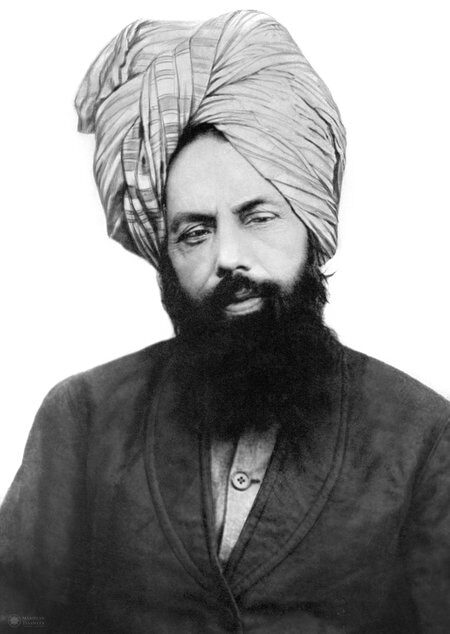
One ought to remember that there are two forms of beneficence. Firstly, there is graciousness (rahmaniyyat); and secondly, mercy (rahimiyyat). The divine grace of rahmaniyyat is that which was in practice even before our beings came into existence. For example, before anything else, through the insight of His eternal knowledge, Allah Almighty created a heaven and earth and other worldly things and heavenly bodies, which would all fulfil some purpose in our lives – and so they do. It is humans that ultimately benefit from all of these creations. When goats and sheep and other animals are themselves beneficial to man, what benefit do they derive in the real sense? Among those things that are physical, just observe how humans consume many exquisite and excellent forms of food. High-quality meat is reserved for humans whereas scraps and bones are thrown to dogs. At a physical level, the pleasures and comforts that humans enjoy are experienced by animals as well, but they are the primary privilege of mankind. Animals do not partake of spiritual pleasure. Hence, there are two forms of beneficence. Firstly, that which resulted, since the earliest times, even before our existence, in the creation of the elements and matter and which are bound to our service. All of these things were present even before our own existence, human desire or prayer, by virtue of the demands of rahmaniyyat. The second form of beneficence is divine mercy (rahimiyyat); that is to say, when we pray, Allah the Exalted bestows. If one contemplates, it becomes evident that the relationship which underpins the law of nature is the exact relationship found to exist in prayer. Some people consider prayer to be a self-invented belief. However, I would also like to elaborate on the relationship that our prayer has with God Almighty. When a child becomes restless with hunger and screams and wails for milk, a woman’s breast begins to fill with milk. A child has no conception of prayer, but how do the cries of a child bring forth milk? Everyone is experienced in this regard. At times, it has been noted that a mother feels no milk in her bosom, but as soon as her child cries, milk begins to fl ow forth. Now, can our cries before Allah the Exalted bring forth nothing? Indeed, divine favour does fl ow forth and all our cries are heard, but those who are blind and consider themselves to be scholars and philosophers are unable to see. If an individual keeps in mind the relationship that a child has with its mother and reflects over the philosophy of prayer, it becomes very simple and easy to understand. The second form of beneficence teaches us that one form of grace is received by asking for it. If a person continues to beg, they shall continue to receive. Allah the Exalted states:
“Supplicate and I shall accept.”
This is not as an empty phrase; rather, this is an inherent characteristic of human nature.
(Hazrat Mirza Ghulam Ahmadas, Malfuzat, Vol. 1, pp. 125-126)

